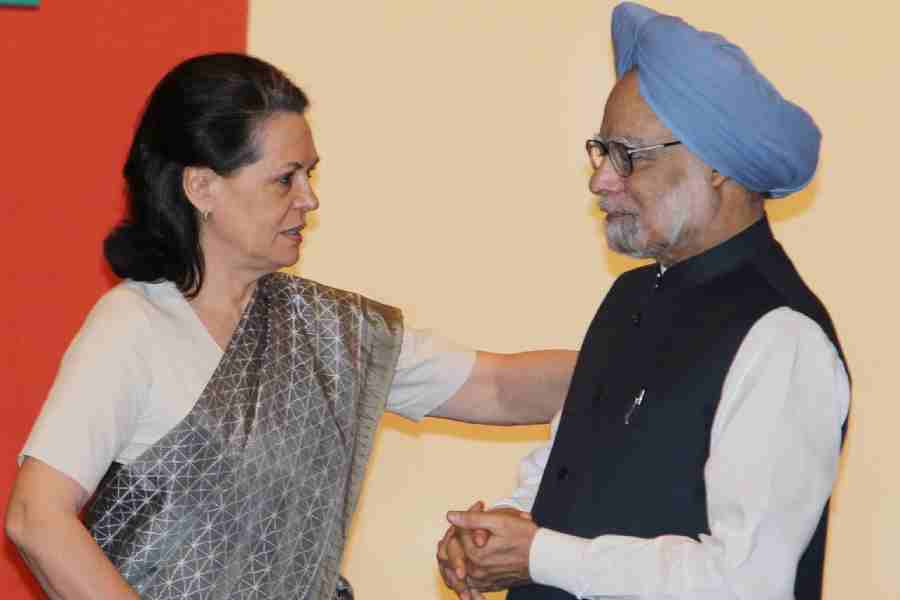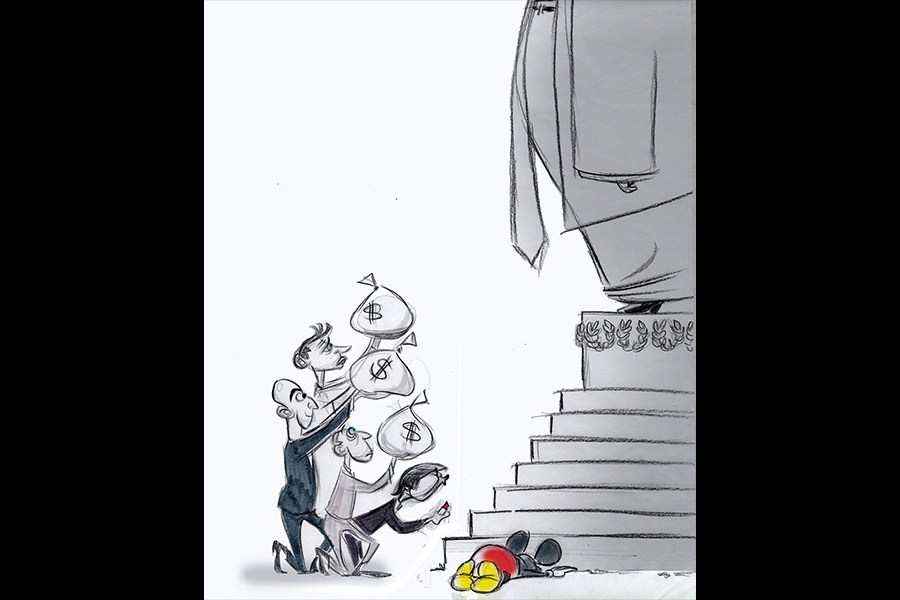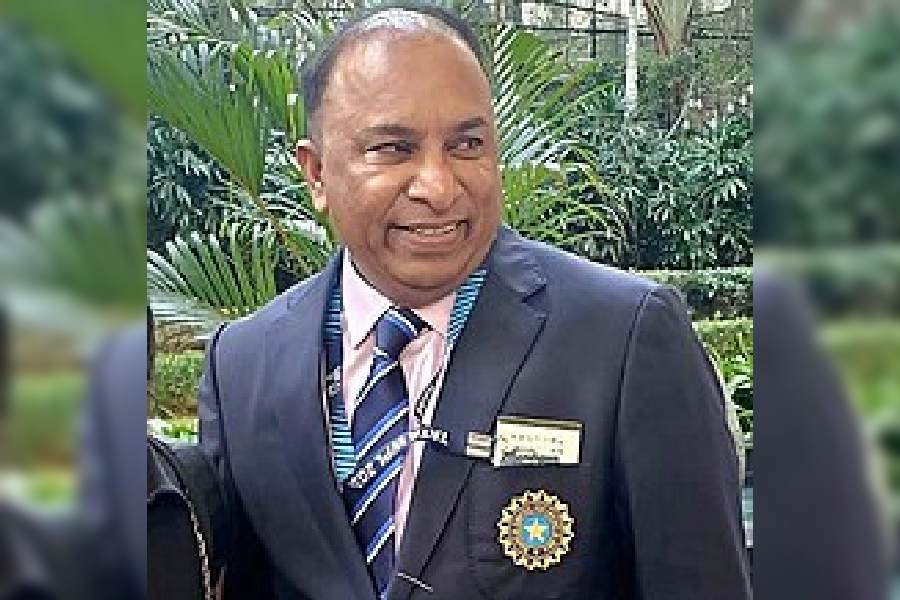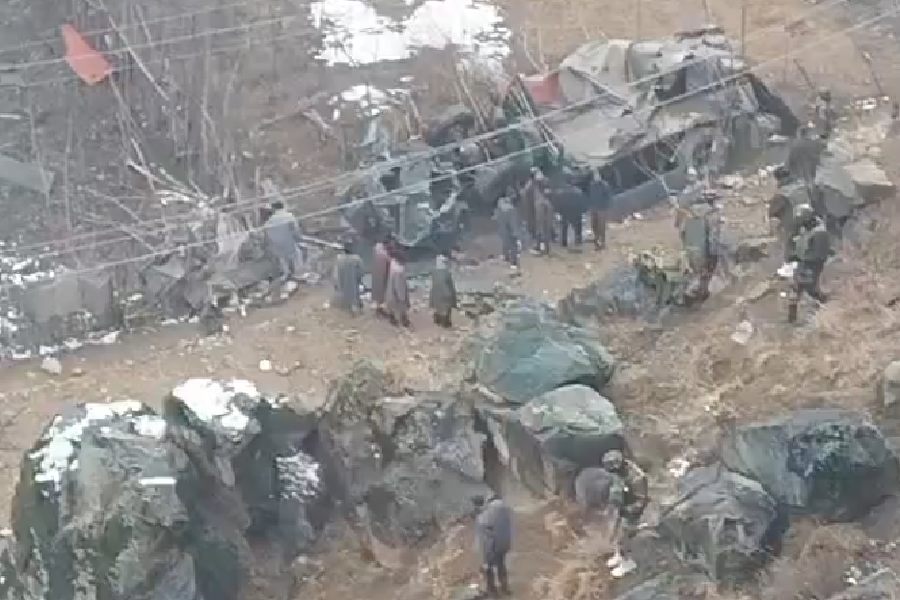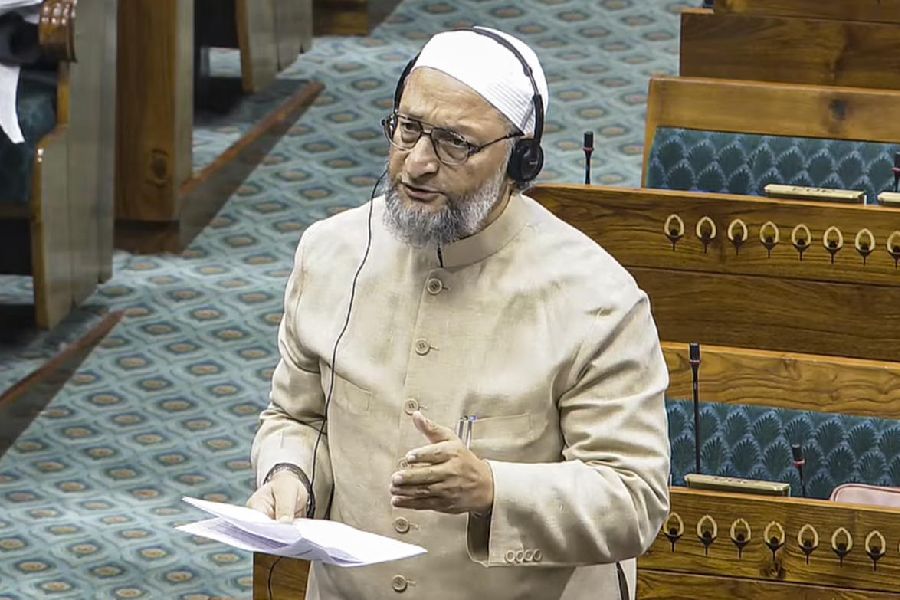The former prime minister, Manmohan Singh, who died last week, will always be remembered for his seminal role in changing the direction of economic policy in India. Yet, such are the vagaries of political existence — not least after the parliamentary election of 2024 — that the tributes to the man who was berated as the ‘accidental prime minister’ were invariably laced with sideswipes at Prime Minister Narendra Modi. It is as if Singh lacked any independent standing. His scholarship was contrasted with Modi’s earthiness; his self-effacing humility with the present incumbent’s flamboyance; and his political tentativeness with the present prime minister’s certitudes. I don’t think the implied comparisons with Modi enhanced Singh’s stature. They were two very different individuals, with different personalities and temperaments, who had risen to the top of the political pile through divergent routes.
In a WhatsApp group comprising the alumni of one of Delhi’s elite colleges, many of whose members had a good innings as senior bureaucrats under different Congress governments, there were many tributes to Singh and anecdotes about him, all pointing to the post-2014 sense of loss. There was one assessment by a bureaucrat who had risen to the very top of his service that I found exceptionally interesting. It was suggested that Singh demonstrated that major shifts in policy could be made without necessarily proclaiming their virtues from the rooftops. Presumably, this was an indictment of Modi’s penchant for publicising every programme of his government.
Whether Singh inherently believed in reform by stealth or was forced into it by political compulsions, which included belonging to a party that was instinctively wary of market economics, is worth considering. In any case, economists as a tribe have always nurtured the conviction that managing the economy is a technical skill that shouldn’t be left to politicians, especially those who cut their teeth in mass mobilisation. Professional politicians, on the other hand, have felt that the economy is too important a sphere to be left to economists.
To some extent, the liberalisation of the economy that P.V. Narasimha Rao and Singh kick-started in 1991 had to be disguised as either compulsion (including pressure from the International Monetary Fund) or as the highest point of Nehruvian wisdom. It is doubtful if intelligent members of the Congress Party bought the latter justification but the ideological heresy at least allowed Singh to go about his business without having to answer insolent sceptics. Like many others, Singh underestimated the instinctive support of a very large body of Indians to the liberation from the licence-permit-control raj. Disproportionately influenced by the Left-leaning intellectuals and beautiful people in Lutyens’ Delhi, Singh was inclined to drive the vehicle of liberalisation at a speed slower than the prescribed speed limit. The criticism of the likes of the pro-Moscow journalist, Nikhil Chakravarty, who had an inside track to the Congress Establishment and was sufficiently angered by Singh’s reforms to label him a Quisling (the name given to those who collaborate with the enemy) in an article in The Telegraph, may well have hurt him. It was reassuring that in his own way, he had internalised the principle that guided the British royal family: don’t complain, don’t explain.
Predictably, this caution, laced with fear, was an approach that endeared the government to the bureaucracy. Singh dismantled many controls but left many of the discretionary powers of the State intact. This cautiousness proved politically unrewarding since the dismantling of the Nehruvian order — not merely in the economic sphere but also in foreign policy — led to an incomplete transformation. Too much time and energy of the nation were wasted in dissecting the implications of half-hearted deregulation of different sectors.
The so-called policy paralysis that became the hallmark of the Singh-led United Progressive Alliance governments from 2004 to 2014 resulted in India performing much below its potential. This may not have been to the liking of Singh. Moreover, as a man of unimpeachable integrity, he would also have been horrified by the rampant corruption in his government. However, since non-assertiveness was his constant signature tune, he had to tolerate the intolerable in the hope that the ragged edges of his government would not be exposed to public scrutiny.
It was a naïve hope since the sleight of hand by ministers didn’t go unnoticed by the media, the courts, and the government’s political opponents. Yes, Prime Minister Singh was never viewed as a co-conspirator in scams involving the allotment of coal concessions, the bidding for telecom licences, and the contracts for the Commonwealth Games. But the fact that his personal image was untainted yielded few political dividends. He was seen as a weak leader who tolerated wrongdoing for the sake of remaining at the helm. Singh was constantly mocked as the prime minister who reigned but didn’t rule and even pilloried as a caretaker for the Gandhi family. When the UPA crashed to an inevitable defeat in 2014, the Congress recorded its worst electoral performance in history. Of course, the responsibility didn’t stick to Singh, but that was hardly an achievement. Without being publicly humiliated in party fora, he was deftly eased out of any active role in politics, except when he was called upon to make an intervention in the Rajya Sabha to show up the Modi government as a collection of cretins.
Manmohan Singh came to the Indian political scene as a breath of fresh air. He was an intellectual who didn’t have the stylistic pretensions of the class he represented. He never raised his voice and his public speaking skills were not quite fit for purpose. Yet, there is no question that he was an object of adulation, and his decency was legendary. The goodwill he had would have allowed him to transform India rather than be content with half-measures. But, unlike Modi, he lacked the political self-confidence that comes from being idolised by both the masses and the political class. Singh’s biggest problem was that he had to play the role of the chief executive officer with the owners of the Congress Party breathing down his neck. The proprietors viewed his tenure as prime minister as the Regency period with Singh holding fort before the legitimate heir resumed charge of the family enterprise.
History will always see him as the brilliant man who got to the top by being a plodder.

